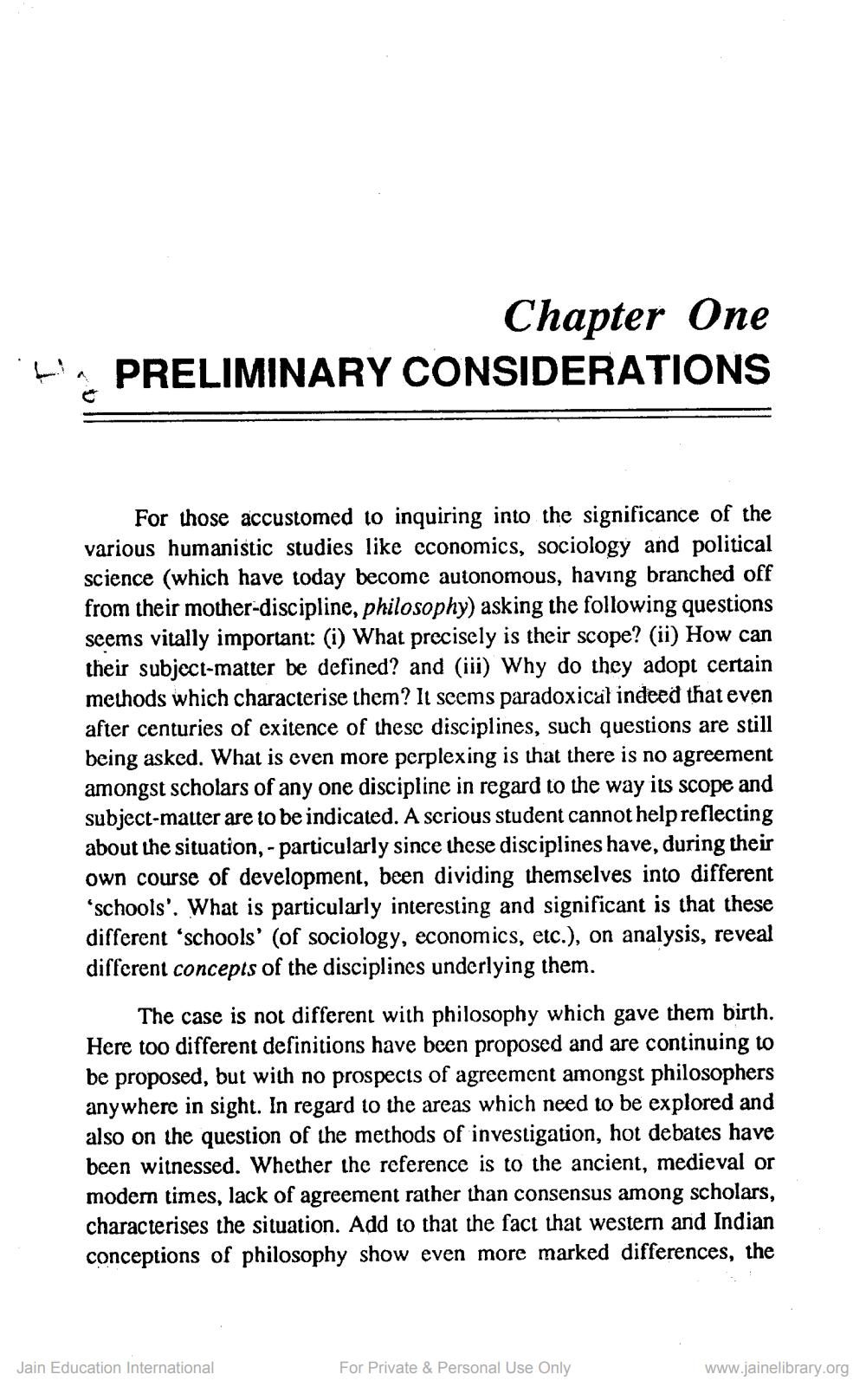________________
Chapter One La PRELIMINARY CONSIDERATIONS
For those accustomed 10 inquiring into the significance of the various humanistic studies like economics, sociology and political science (which have today become autonomous, having branched off from their mother-discipline, philosophy) asking the following questions seems vitally important: (i) What precisely is their scope? (ii) How can their subject matter be defined? and (iii) Why do they adopt certain methods which characterise them? It seems paradoxical indeed that even after centuries of exitence of these disciplines, such questions are still being asked. What is even more perplexing is that there is no agreement amongst scholars of any one discipline in regard to the way its scope and subject matter are to be indicated. A scrious student cannot help reflecting about the situation, - particularly since these disciplines have, during their own course of development, been dividing themselves into different 'schools'. What is particularly interesting and significant is that these different 'schools' (of sociology, economics, etc.), on analysis, reveal different concepts of the disciplines underlying them.
The case is not different with philosophy which gave them birth. Here too different definitions have been proposed and are continuing to be proposed, but with no prospects of agreement amongst philosophers anywhere in sight. In regard to the areas which need to be explored and also on the question of the methods of investigation, hot debates have been witnessed. Whether the reference is to the ancient, medieval or modern times, lack of agreement rather than consensus among scholars, characterises the situation. Add to that the fact that western and Indian conceptions of philosophy show even more marked differences, the
Jain Education International
For Private & Personal Use Only
www.jainelibrary.org




